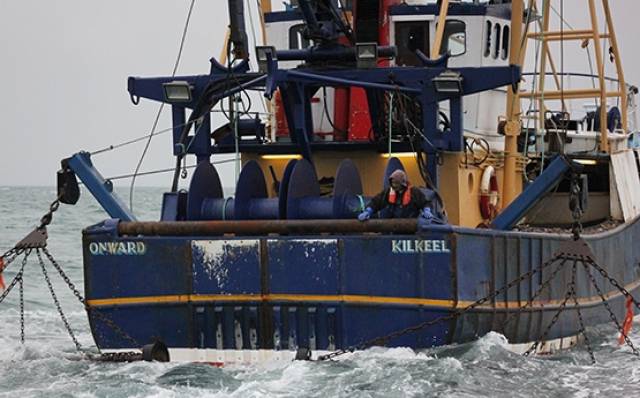The Royal National Lifeboat Institution (RNLI) have joined with the Maritime Coastguard Agency (MCA), the Fishermen’s Mission and Seafish, the group responsible for the promotion of the fishing industry, to hold a fishing safety event in Kilkeel, County Down next month.
The event will be held at 11am on Friday 8th July 2016 in the Fishermen’s Mission centre in Kilkeel. It is open to all fishermen to attend and is free of charge.
RNLI Fishing Safety Manager, Frankie Horne will lead the event which will involve a demonstration and discussion focused on safety in the fishing community. It will take an in-depth look at the areas where fishermen are being seriously injured or losing their lives fishing. This year has already seen fatalities in the industry.
The demonstration and talk will focus on the areas of stability, safety awareness and deck machinery. The RNLI have run a number of campaigns in the past aimed at fishermen. Last January the charity launched a hard-hitting campaign encouraging fishermen to make sure their boats kept them safe at sea.
RNLI Fishing Safety Manager Frankie Horne said, ‘I have been a fisherman for 37 years from cook, to deck hand to skipper/owner. I am also a volunteer lifeboat Coxswain at Peel RNLI on the Isle of Man. We are working with fishermen on how to make their industry safer. This starts with the fishermen themselves and with us listening to and addressing their concerns.’
‘We want the fishermen to help us solve the safety problems in the industry that lead to loss of life, or life-changing injuries. Fishing is still the most dangerous peace time occupation and we all have a collective responsibility to make fishing safer.’






























































